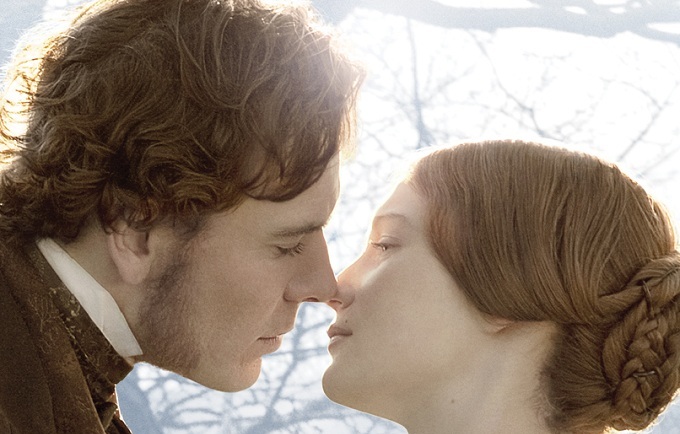Jane Eyre Review

The Plot -
Orphaned as a baby, Jane Eyre endures years of cruel treatment at the hands of her Aunt and then at a viscious boarding school, but her life finally changes when she becomes a governess at Thornfield Hall – and meets Mr Rochester, a brooding hero with a dark secret. He captures Jane’s long-buried imagination, and is in turn captivated by her. It is Charlotte Brontë’s most famous novel and has been adapted for the screen over twenty times.
The Good -
This latest version is directed by Cary Fukunaga, cinema’s hipster director du jour, and he combines the vintage with the (post)modern to bring a freshness that’s been lacking in recent years. It’s out with the old and in with the new – instead of the classic “period drama” feel (there’s not a country dance or heaving bosom in sight) Fukunaga focuses on the novel’s Gothic roots, playing up the darkness of Thornfield Hall and the secret buried within it.
This is also the first adaptation with a different beginning to the novel, a brave restructuring by screenwriter Moira Buffini. It pays off, giving old fans a new way to look at the material, and those watching it for the first time will never notice the difference. In fact the film is perfect for newcomers – despite the new structure the film balances the different plot lines perfectly, thinning out the dramatis personae and focusing increased attention on a reduced cast. It’s Jane’s emotional journey – the novel’s core – that takes centre stage.
More than anything, it is stars Mia Wasikowska and Michael Fassbender who shine. Wasikowska is a revelation as Jane, with a compellingly calm demeanour that makes more of her physical performance than it does her words – perhaps strange for an adaptation from a novel, but another new approach that’s emphasised by dialogue-free sequences and Jane’s quiet observations, passages not often seen on screen but vital to the character. As a result, Wasikowska’s Jane is a more vivid portrait than those that came before her.
Fassbender does present an immediate problem – he’s too handsome. Mr Rochester was never designed to be handsome, but Fassbender more than makes up for the pretty face with an intimidating and captivating performance. He captures the ugliness in Rochester without sacrificing the charm, and the two leads sizzle together in every scene. Their exchanges give energy to what would otherwise be a much slower film, and combined with the return to the Gothic – flickering candles and dark, haunting architecture – their encounters are mesmerising.
The Bad -
It’s difficult to pinpoint negatives – this film feels like the culmination of the previous twenty or so adaptation, flaws finally perfected and pace tightened – but you can find them if you look. Fukunaga is lucky that his two leads have so much chemistry – without it the film would have been too slow, missing the injection of energy that Wasikowska and Fassbender provide. There’s also a danger that it wonders too far over into arthouse territory; the dialogue-free sequences often feel like they’ve been borrowed from the indie school of shorts shot on Canon 5Ds, both in aesthetic and colouring. As part of a whole it works to contrast with the darker tones elsewhere, but it can be jarring.
It would be nice to see more of the other female characters too. Approaching the cast list as “less is more” does wonders for the film, but it’s the women who disappear. Only Jane and Mrs Fairfax (and arguably the young Adèle) really survive the cut – Diana and Mary Rivers are relegated to a few scenes each, and Jane’s cousins Eliza and Georgiana vanish completely. One of the novel’s most essential women is only seen once. Jane Eyre is often called the first protofeminist novel, and it’s sad to see it lose some of those female voices.
The Ugly Truth -
Superb performances, innovation and veneration in equal measure, and visually stunning, Jane Eyre captures the essence of the novel and the character in a way never done before. A worthy work for fans of the novel to enjoy and a perfect introduction for newcomers, this latest Jane Eyre is the adaptation the world has been waiting for.
Review by Sophie Wing